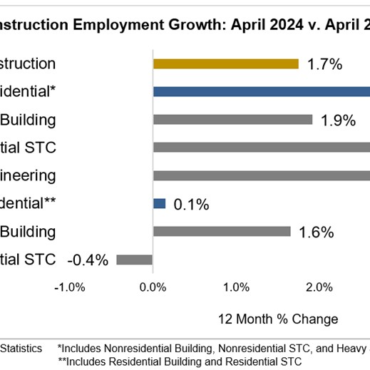In a letter penned to the founding publisher of SNIPS, a reader, soldier and sheet metal contractor shared his perspective from the frontlines of World War II. Ed Carter was quick to respond, informing his compatriot of the state of the industry and steel availability at the height of America’s wartime economy.
America, with its industry far removed from the fronts, was the only belligerent in the conflict to expand consumer goods and choices. With overtime, minimum wage and other labor-friendly policies, wages increased 50% from 1939 to 1944 on the home front – beating inflation’s climb of about 25% during the same period.
This fueled growth in a budding consumer economy despite rationing, bringing in much needed tax revenue and war bond capital. But as the letter attests, it wasn’t easy to accomplish these gains on the home front, amid a wartime economy experiencing heavy state intervention.
“Brother, the sheet metal business has become lousy since you left. Lack of material has hit a lot, but it is gratifying to learn that a plan is under way which will get some more material to the shops so they can stay in business,” Carter wrote back, before asking the reader to share images of the aviation sheet metal work he was performing.
Developments made by companies ranging from Lennox to Carrier for the war effort eventually found their way into the consumer economy and HVAC contractors increasingly brought ducted heating and cooling systems to homes, transitioning the industry away from steam and hot water in favor of forced-air systems.
When soldiers returned home from the war, they flocked to the trades modernizing American living standards. Undergirding the success of the HVAC and sheet metal contracting industry then, as much as now, is the overall health of the American economy and the brotherhood of its network of business and labor.
War Never Changes
While the cliché “war never changes” is true in many respects, it is also true the mammoth percentages of GDP America used to commit to the state collapsed with the Iron Curtain. The U.S. consumer economy has flourished since – comprising the tallest support of a global and interconnected economy that imposes real consequences on bad actors.
As the number of violent conflicts worldwide grows to its highest toll since the ‘80s, America finds itself increasingly wrapped up in cyber, trade and proxy wars, as well as wars of drugs and terrorism.
As former sheet metal worker turned tabloid columnist Pete Hamill famously remarked: “It’s odd being an American now. Most of us are peaceful, but here we are again, in our fifth major war of this century.” He also remarked that only 10% of those deployed to Vietnam, where he corresponded, saw combat; with staffing much more concentrated in support roles. In this respect, war indeed never changes.
Drug Wars
Less violent forms of warfare have increasingly diffused into civilian life. Drugs, like fentanyl’s precursors, often imported from China and smuggled into the U.S., have killed more Americans in this century than all military conflicts combined. The opioid epidemic has exacerbated a workforce shortage and still traumatizes swaths of the country.
“In August of 2022, then-Speaker Pelosi visited Taiwan, and the Chinese retaliated after that by stopping sharing information about suspicious shipments and suspected drug trafficking into the United States,” said U.S. Rep. Jim Banks (R-Ind. District 3) during the committee on the Strategic Competition Between the United States and the Chinese Communist Party.
“They actually retaliated against us, because our Speaker of the House, of the President’s own party by the way, visited Taiwan. How is that not an act of war?” he said, after adding he is considered by some congresspeople to be a “hawk.” Banks won his party’s primary for a Senate seat vacated by the now Governor of Indiana.
While rhetoric is certainly heating up, these conflicts are not yet kinetic for most Americans, restrained to a few theatres and not at the scale of total world war. Yet Americans are increasingly involved on the home front in what American Diplomat George Kennan termed a “new cold war” with Russian and China in 1998.
Trade and Cyber Wars
Everyone in some way felt the impact of sanctions on Russia with higher global energy prices. In a continuing trade war with China, HVAC and sheet metal distributors are feeling the pinch on imports.
Over 353 million people were impacted by data breaches in the U.S. in 2023, roughly matching up with its population. And in the case of attacks targeting businesses by state-sponsored actors, the goal of these hackers is often loftier than monetary gain, with a particular malice for causing collateral harm to the economy.
We call those who endured the second great war members of the “greatest generation” for a reason. In the face of scarcity and adversity, they resolved to plant victory gardens and committed their labor, in unequal parts, to the front lines and home front in a whole-of-nation approach that pays dividends to their inheritors to this day.
We shouldn’t forget the source of their strength as much as our own: normal, everyday economic activity and a strong consumer. This much will never change. Every business that fails to innovate – that isn’t “reinforced” by a new growth cycle and shutters without substitution or relief, succumbing to crippling cybercrime or punitive tariffs – represents attrition.
Whether you require installation, repair, or maintenance, our technicians will assist you with top-quality service at any time of the day or night. Take comfort in knowing your indoor air quality is the best it can be with MOE heating & cooling services Ontario's solution for heating, air conditioning, and ventilation that’s cooler than the rest.
Contact us to schedule a visit. Our qualified team of technicians, are always ready to help you and guide you for heating and cooling issues. Weather you want to replace an old furnace or install a brand new air conditioner, we are here to help you. Our main office is at Kitchener but we can service most of Ontario's cities
Source link




Add Comment